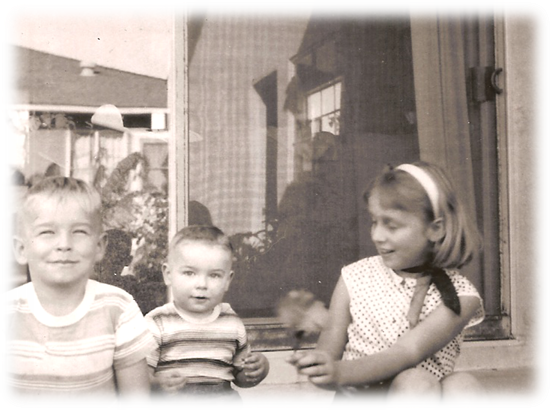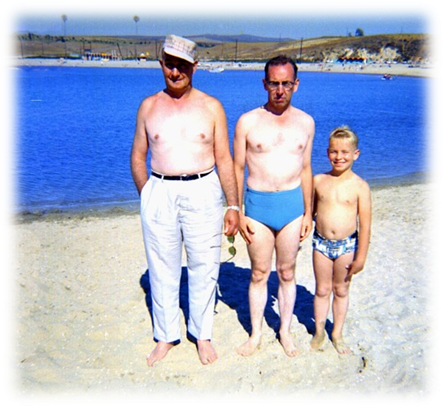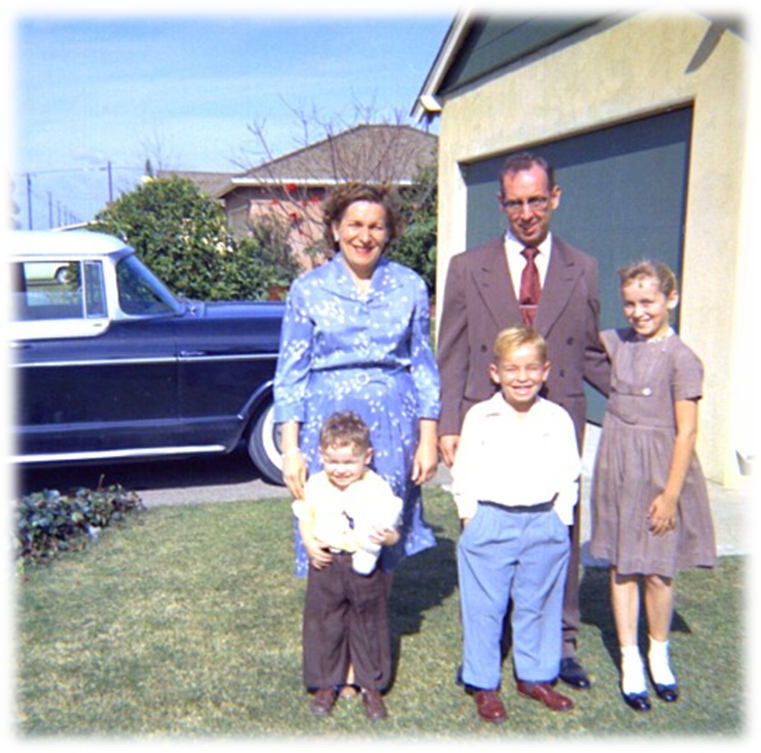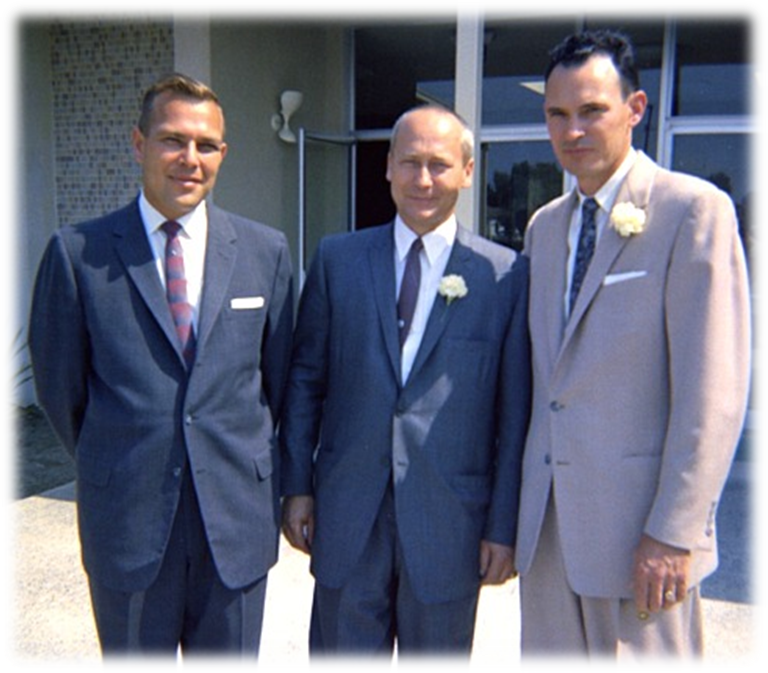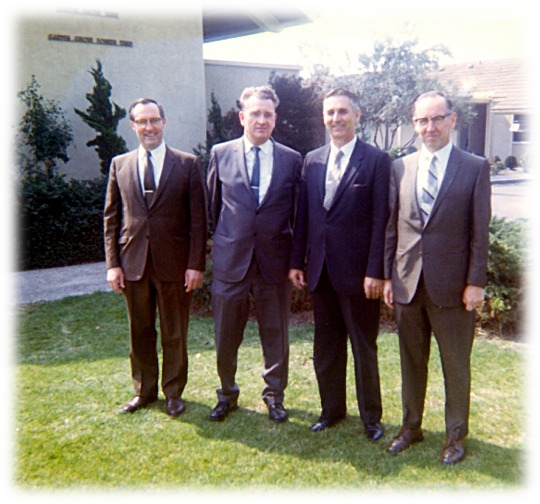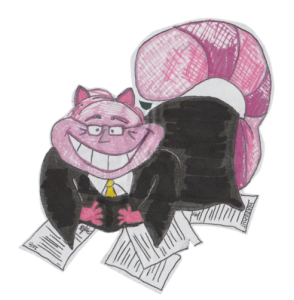“Fun Facts Saturday”
The 1950s was a great time to grow up in America. Life was simpler, safer, and saner.
We were the World War II bumper crop of kids – the “Baby Boomers.” We were the “Luckiest Generation.” These were the “Wonder Years.”
Jobs and Homes
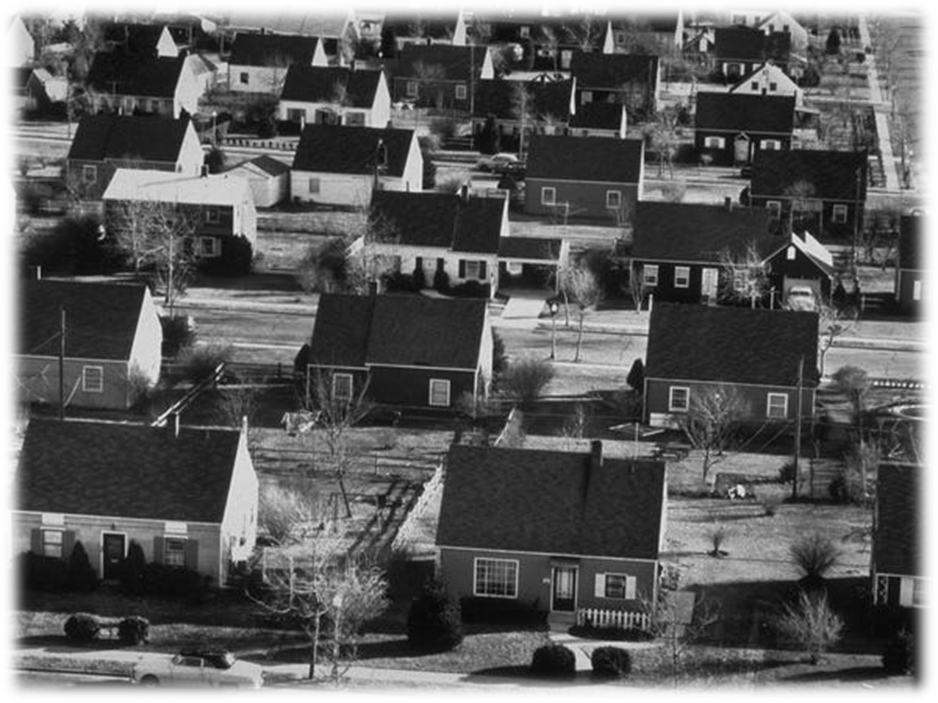
There was full employment and a housing boom. Everybody moved into new cheap tract “cookie cutter” homes (ours $13,000) in the suburbs. Each home had a traditional family, with a working dad (mine $6,000 per year), a stay-at-home mom, and plenty of kids. The neighborhoods were clean, and there was no graffiti or trash.
Although my family had limited means, our parents gave us everything money could not buy. We were blessed with security and love.
Cheap Prices, Cash Only
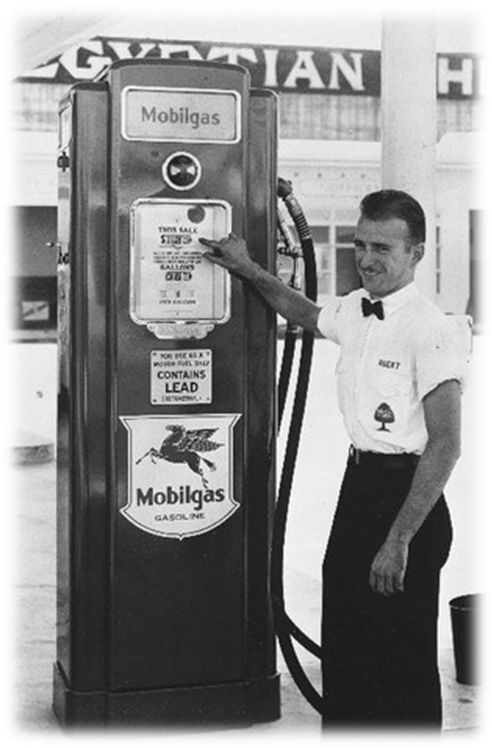
Prices were cheap. Candy bars cost a nickel each, or three for a dime. Ice cream cones were a nickel a scoop. Gasoline got as low as $0.19 a gallon when the stations had a “Price Wars.” It was full service, where attendants checked oil, tire pressure, and washed the windows.
We paid for everything in cash. Credit cards and ATMs did not exist. We had “Sears” and “Montgomery Ward” catalogs, and we filled discount books with “Blue Chip” and “S&H Green” stamps.
Our closest shopping center was at Brookhurst St. and Chapman Ave. There was a Savon-On drug store and a Newberrys home good store. We went to the grand opening at the adjacent Von’s grocery store, featuring the famous, “Bozo the Clown.”
Haircuts and Movies
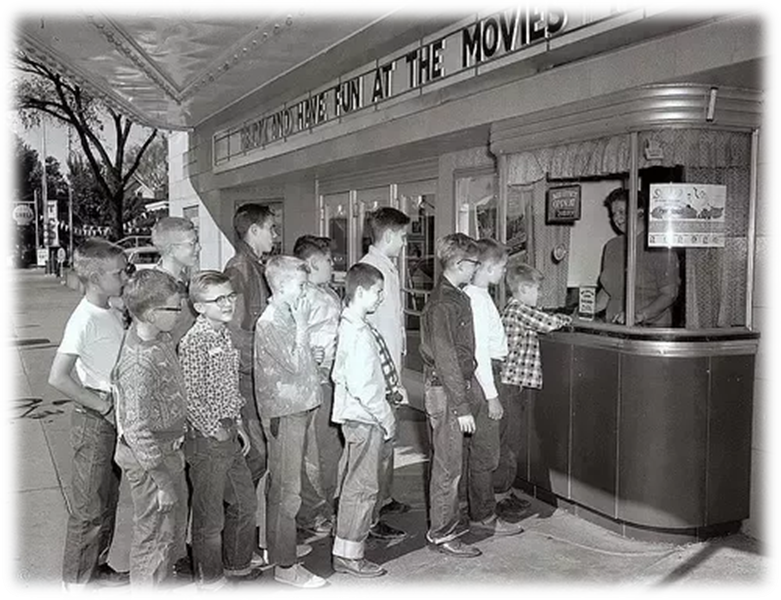
My folks would give me a few coins and let me walk a mile to the barber shop on Main Street. I sat in the barber chair, and, as instructed, asked for a “regular boys” haircut. The barber usually gave me a “Bazooka” bubble gum for being a “good boy.”
We spent occasional Saturday afternoons at “The Gem Theater” (“The Germ”) on Main Street, watching a double feature and cartoons. Since my money was limited, I had to choose the candy that would last the longest — that usually meant the hard Jujubes. I would have preferred chocolate, but it didn’t last.
Long Summer Days
We spent summer afternoons on the front porch playing “Risk,” riding bikes, and playing “Over-the-Line” at the school. We spent summer evenings playing “Hide-n-Seek” in the neighborhood. We didn’t have wristwatches, and we knew when to come home when a parent shouted, “Time to come home!”
We often played in the middle of the street. One of us would yell “Car!” so we didn’t get run over. When we got thirsty playing, we drank from a nearby garden hose.
“Golden Age of Television”
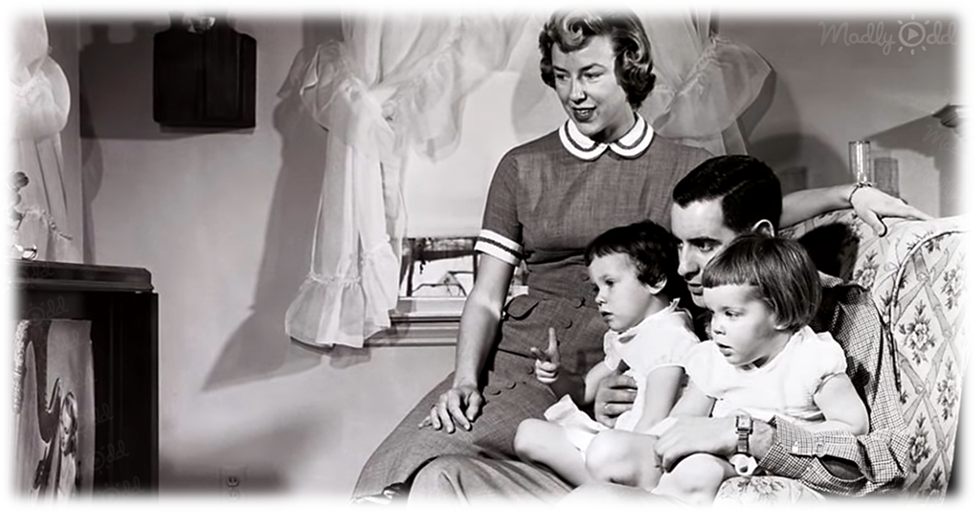
The 50s were the “Golden Age of Television.” Watching our the black-and-white TV was a family activity. We grew up on “Andy of Mayberry,” “Engineer Bill,” “Sheriff John,” “Felix the Cat,” “Superman,” “Leave it to Beaver,” “My Three Sons,” “What’s My Line,” “I Love Lucy,” and “Father Knows Best.” On Sundays, we raced home after church to watch “Disney’s Wonderful World of Color” on our black-and-white TV.
Every TV show was family oriented. There was no vulgarity, violence, or sex. Television and radio programs reinforced the traditional values and character traits we learned in school, home, and church.
Milk, Ice Cream, Donuts Delivered
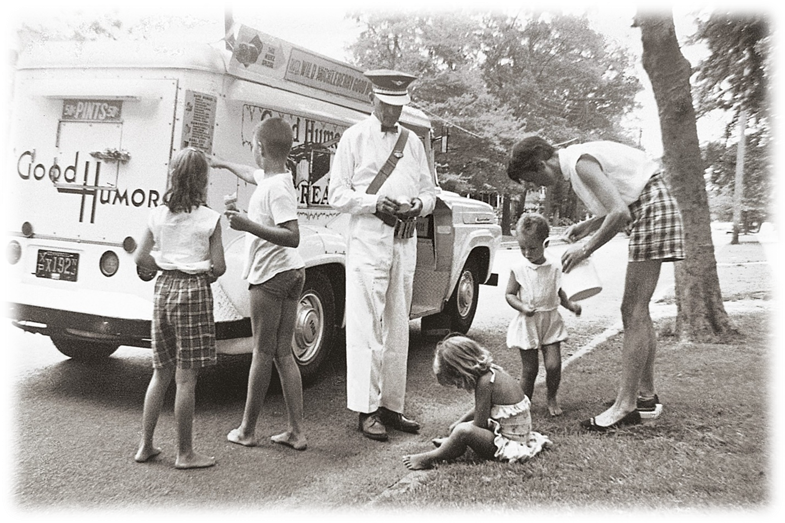
Milk was delivered, usually in quart glass bottles.
“Good Humor” ice cream trucks drove through the neighborhood, playing loud music. If you bought an ice cream bar, and the stick had the words “Good Humor,” you got a free ice cream.
“Helm’s Bakery” panel trucks also drive through the neighborhood selling breads and pastries. The driver opened the back doors and pulled out trays with rows of fresh donuts, pastries, and breads. It was a wonderful sight to behold! Although we could rarely afford to buy any, we savored the smell.
My all-time favorite Christmas present was a bright red three speed bike. I spent countless hours riding through the neighborhood and schools – without a helmet.
Dial Phone with “Party Lines”
We had a rotary dial phone with a “party line.” Several anonymous families shared the same phone number. Sometimes, you had to ask the other party to stop “hogging” the line so you could make a call. You could eavesdrop on other parties, if you were bored.
Manual Home Labor
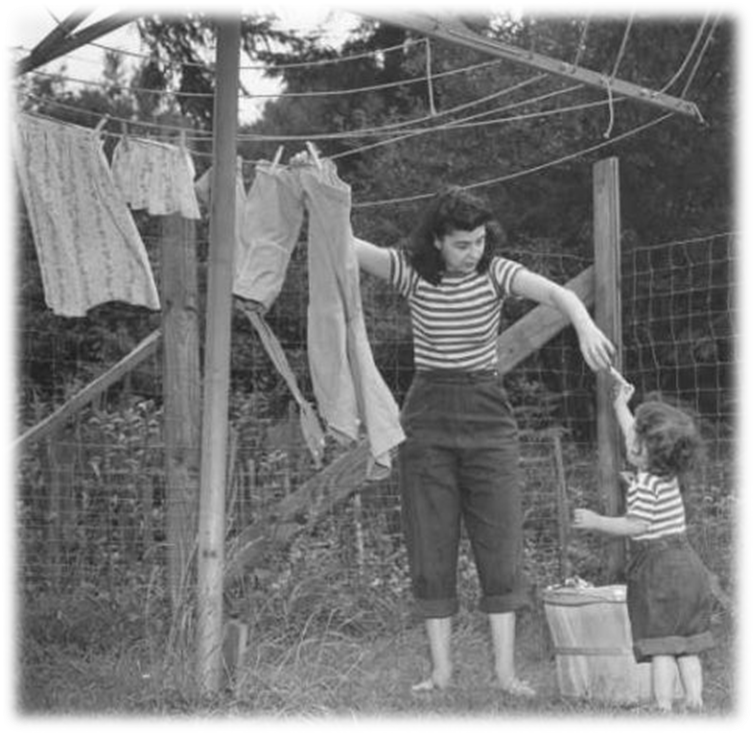
There were no clothes dryers or dishwashers. Moms hung the wet clothes on lines in the backyard to dry. Washing dishes was a chore for moms and kids.
There were no power lawn mowers or leaf blowers. We kids pushed the mower and raked the leaves about as so as we could walk. Everyone did their own landscaping, with friends and neighbors helping.
There were no car washes. That’s what driveways, garden hoses, and kids, were for.
“God Bless America”
Unfortunately, this was the beginning of the “Cold War.” We feared the Communists and the Soviet Union. We had regular “duck-and-cover” drills in school, where we knelt under our desks and covered our necks and heads.
We were proud to be Americans. We gladly stood and recited the Pledge of Allegiance every day in school from kindergarten to high school. Every adult voted. Our parents, neighbors, teachers, ministers, and police all supported each other. They watched over us, and kept us safe. Together, they reinforced traditional values of integrity, responsibility, and good citizenship.
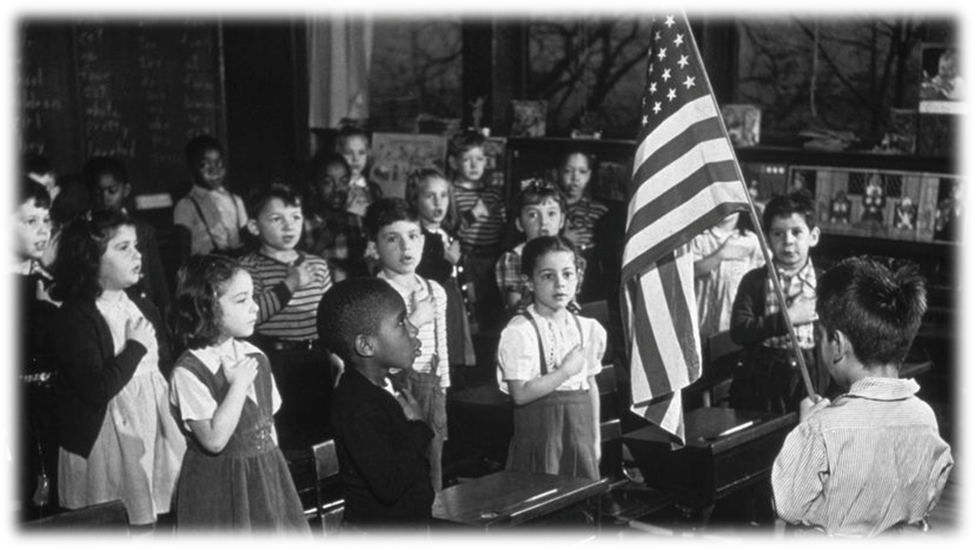
Garden Grove Family and Church Images
